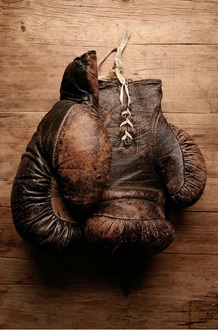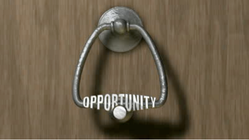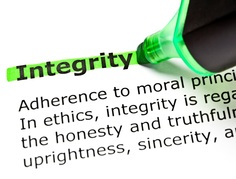 So we rebuilt the wall till all of it reached half its height, for the people worked with all their heart. Nehemiah 4:6 It’s what Proverbs calls our most precious possession: diligence. It means to move quickly and do your best. It is a skillful hustle. More plainly, diligence is work ethic; it’s the moral obligation to do one’s best. It means you don’t look for an easy way out or leave the difficult jobs for someone else. If something needs be fixed, you fix it. If something needs to be cleaned, you clean it. If something must be done you, do it. It’s this demonstration of character that distinguishes you as a person of value, deserving of promotion and advance. Success doesn’t “just happen.” It happens because diligence made it happen. Lou Holtz, the only college football coach to lead six different college football programs to bowl games and four different programs to the final top 20 rankings, understood the value of diligence. He said, “Winners embrace hard work. They love the discipline of it, the trade-off they're making to win. Losers, on the other hand, see it as punishment. And that's the difference.” Diligence isn’t suffering, it’s the fertile soil of opportunity. It’s the difference between winning and losing, success and failure, and going to the next level or staying stuck in complacency. Opportunity is not sitting idle and waiting for someone to open a door for you. Opportunity is found in the hustle and hard work. It’s early mornings and late nights; it’s long, hot days and tired afternoons. Opportunity presents itself in the refusal to cut corners and quit. Opportunity doesn’t just appear, it is provoked, incited and inspired to appear by diligence. Work hard—harder than anyone else—and see how opportunity presents itself. Thomas Edison said, “Opportunity is missed by most people because it is dressed in overalls and looks like work.” This is especially important for people of faith to understand. It’s amazing how many Christians believe success will come if they simply get a “man of God” to lay hands on them or a “prophet” to prophesy over them. They believe the con-artist-preachers who say, “Bring an offering and I’ll pray an anointing upon your life for success and prosperity.” Or, “Come to my church and I’ll lay hands on you and impart an unction for favor in your business.” New cars, new homes, more clients, greater revenue—all you need is a prayer, an anointing. I even heard one preacher toting his “Holy-Ghost-Anointed Pens.” He said, “Use these pens that are anointed by God and you’ll pass every exam and succeed in every contract.” Nonsense. Not only is it not biblical, it’s a heresy that borders on witchcraft. It’s spiritual junk food. It has no value, no nutrition or substance. There’s no talk of hard work, discipline, study, preparation, core competencies or simply having a good attitude. Just get someone to pray for you and you will succeed. Ludicrous. If there is any formula for success or prescription for promotion, it’s not found in a prophet’s prayer, it’s found in diligence. In Matthew 25, Jesus emphasized the need for diligence in His Parable of the Talents. There were three workers; each was given resources according to his ability. One was given five talents, another two talents and the last was given one talent. The reward they received, the next level to which each was assigned, was proportionate to their performance, their diligence. Those who worked hard, properly prepared, demonstrated diligence and became productive were promoted. Those who did not, were condemned. The message is clear. God has incredible plans for our lives. There are things He wants to release to us, blessings He wants to give us, but the key to receiving them is faithful diligence. This is what He meant when Jesus said, “'Well done, good and faithful servant; you have been faithful over a few things, I will make you ruler over many things.” There’s no mention of one’s special gifting, talent or skill. Those who worked hard—who demonstrated diligence where promoted to the next level. Check back next week for further discussion diligence. Or, check out my newest book, Upward: Taking Your Life to the Next Level.  Regardless of political affiliation or which candidate you support, we can all agree that this has been a turbulent election cycle. For leaders, it has largely been a lesson in “What Not to Do!” The following are some observations that I recently shared with our leadership team. 1. Be careful with your emails. The FBI recently reopened an investigation of Hillary Clinton due to the discover of 650,000 emails with metadata pointing back to her “persona” server. Although most of us may not have to worry about classified or confidential material, her mistakes give all leaders some food for thought when it comes to using email:
2. Be discreet with social networks. Donald Trump is renowned for his incessant tweets. In fact, he has been accused of lying because previous posts contradicted some of his more current claims. It suggests the need for all of us to be careful with social media.
3. Apologize when you mess up. Hillary wouldn’t apologize for her email debacle until her declining poll numbers forced her to. Donald Trump was forced to apologize for that infamous, disgusting video that we all hated. Many leaders refuse to apologize because they think it makes them vulnerable to criticism. Maybe so, but it also strengthens their character. Everyone makes mistakes. Everyone. When you do, own it and apologize. It will increase your trustworthiness as a leader. How often have we seen colleagues who try to avoid admitting a mistake or incorrect statement? Such avoidances come across as weaknesses that betray a person’s ignorance and lack of self-awareness. In fact, we lose respect for a leader when he or she fails to acknowledge a mistake. What we desire in our leaders is honesty, humility and self-awareness. Most people gain confidence when a leader acknowledges a mistake and apologizes. Rather than opening the leader up to more criticism, it makes us believe that the leader can be trusted to do the right thing without begin criticized. It makes them stronger. 4. Respect diversity in ethnicity and differing lifestyles. Trump attacked certain ethnic groups and has never recovered. For many, this is unforgivable and I agree. Never should a leader discriminate based on gender, ethnicity or religion. We should respect all people. Obviously, in some organizations (such as religious), there will be lifestyles or religious views that would be considered antithetical to that organization’s values or beliefs and cannot be accepted. But while we may disagree and even reject certain contradicting values, we can still be tolerant. Tolerance means you put up with or bear with people who hold certain values you disagree with. It means that if you disagree, you are still kind and respectful toward them. Tolerance, however, does not mean we must accept and agree with those values to be as just as true as our own. Rick Warren said, “Our culture has accepted two huge lies. The first is that if you disagree with someone’s lifestyle, you must fear or hate them. The second is that to love someone means you agree with everything they believe or do. Both are nonsense. You don’t have to compromise convictions to be compassionate.” In other words, we can love someone without approving what they do. Always be kind and remain professional toward those with whom you may disagree. 5. Respect the younger generation. Neither Trump nor Clinton have a strong appeal to millennials. Millennials care about issues like minimum wage, student loan debt and equality. They feel as though the presidential candidates aren't talking about the issues that matter to them. Instead, they say the candidates speak about social security, taxes, and other topics that they don't view as priorities. Whether you agree with the millennials viewpoint or not, we as leaders must be careful that we don’t speak or lead past the younger generation, caring only care about issues that are important to us. The website Marketing Cloud identified several ways marketers can appeal to millennials
6. Trust is the leader’s highest commodity According to a CBS News poll last month, two-thirds of all voters don’t trust either Donald Trump or Hillary Clinton. A June Rasmussen poll found that 45% thought Trump was less honest even than most politicians. Clinton surpassed him with 46%. Trust requires four elements: character, competence, chemistry and care. Character is about honesty and integrity. These are the fundamental expressions of character, without them a leader’s ceiling is extremely low. Competence is about aptitude and skill set. One can have great character, but they also need the abilities to get the job done. Nothing is more frustrating than a leader who doesn’t know what he or she is doing. Chemistry is how well the leader gels with the team. What kind of relational dynamic and synergy does she or he bring to the other people in the room? Is the leader aware of others and tuned into their needs, or is he aloof, seeing people only as things to use to get his vision done? This leads to the fourth quality of trust: care. People don’t care how much we know until they know how much we care. Leaders who take the time to get to know their people, show interest in their personal lives and felt needs are leaders that connect well with their people and know who to get people to get things done. Take time to talk to your people, listen to them and show a genuine interest in what is happening in their lives outside of work. 7. Great communication skills really do matter. Hillary has become infamous for her very scripted, cold and clinical approach toward communication. Donald Trump speaks from his heart. Love him or hate him, his speeches are somewhat compelling and draw a huge amount of interest. Remember how you look and how you speak is almost as important, or even more important than what you are saying. Great communication skills are essential to effective leadership. But remember that great communication is always more than mere words. It consists of several components.
 So they said, "Let us rise up and build." Then they set their hands to this good work. Nehemiah 2:17-18 Today we continue our study of what Proverbs calls “our most precious possession: diligence.” Diligence is more than hard work; it is hard work that rises from loyalty to a cause. It is a unique kind of commitment that surpasses one’s loyalty to serve their own private interests or personal convenience. Consider those who serve in the military, law enforcement or as first responders. Their vocation requires them to put their lives on the line in service to others. Every day they put the cause before themselves, their ambitions and even their families. Sociologists call it an institutional mindset. It’s a mentality that places the needs of the society, the group or the organization as a priority over one’s personal needs. First responders do it every day, faithfully and selflessly and as a result, we call them heroes—and they are. This is the essence of duty—it’s a loyalty to the cause. And those who share it, have a different mentality than most people today; especially those of us in civilian life. We don’t have an institutional mindset; we don’t have a primary commitment to a society or organization; our primary commitment is to ourselves. This is why most people, when faced with a certain level of sacrifice or self-denial, will find themselves asking, “Why am I doing this? What am I getting out of this?” As a result, their quality of work will diminish—as will their commitment—until they finally justify their lack of diligence and find an excuse to quit. By contrast, the man or woman of diligence will go on because they are driven by something deeper, they are driven by a sense of honor—an inner need to do what is right, not for themselves, but for the institution they serve. Nehemiah had this sense of duty. He had a mindset that elevated the needs of Israel above his own needs. He said, “See the distress that we are in, how Jerusalem lies waste, and its gates are burned with fire. Come and let us build the wall of Jerusalem, that we may no longer be a reproach.” It was a sense of duty: a commitment to a cause greater than himself. Too often we hear preachers, motivational gurus and university commencement speakers tell their audiences: “Find your passion. Look inside to see what you love. Know what your passion is and make your life about that.” That is really bad advice—unless we’re building a nation of narcissists whose primary concern is “What makes me happy?” People of character do not look inside for a passion, they look outside at the world and see what problems need solving and make their lives about that. They ask, “What are the world’s greatest needs and how can my abilities and aptitudes meet those needs?” Their passion, their duty is not determined by what life can give to them, it’s determined by what is life is calling them to do. Though they exist, diligent people are becoming harder to find. Most people commit to a task only to the level of their own comfort and self-interest. They have little tolerance for duty—especially the kind of duty that requires them to deny personal needs and preferences. Paradoxically, this is also why diligence is the great distinguisher. Nothing gives you more distinction and differentiates you from the crowd like diligence. Like no other virtue, diligence is a launch pad for promotion. In fact, one cannot rise to the “next level” without it. This is why Proverbs 22:29 tells us diligence causes one to stand before kings and not unknown men. Those who are building great organizations understand the value of duty and diligence and they will regard those with such character among their most valued assets. Check back next week for further discussion on diligence. Or, check out my newest book, Upward: Taking Your Life to the Next Level.  Then the king said to me, "What do you request?" So I prayed to the God of heaven. And I said to the king, "If it pleases the king, and if your servant has found favor in your sight, I ask that you send me to Judah, to the city of my fathers' tombs, that I may rebuild it." Nehemiah 2:1-5 Last week we began a look at our most precious possession: diligence. For an example, we turn to Nehemiah whose diligence propelled him to greatness. Originally, he was a cupbearer to the king. It was a great job, taste-testing the king’s delicacies, not only to ensure their worthiness of the king’s noble palette, but also to protect the king from poisonous assassination attempts. But despite his comfy job, he could not escape the burden he had for his homeland. Jerusalem had never recovered from the Babylonian invasion almost a century before. What was left of the city remained in ruins and his beloved people were prey to their surrounding enemies. Rather than turn a deaf ear and say, “It’s not my job.” Nehemiah took responsibility and like David would cry “Is there not a cause?” He felt a burden to take action, to get involved, to do something. And if he did not, he would convict himself with personal shame for having done nothing. This is the birthing room of diligence—a sense of responsibility. Responsibility is taking ownership of expectations and demands that are assigned, assumed or imposed upon us and morally obligating ourselves to the consequences of whether or not we have fulfilled those demands. The diligent person accepts the burden of “doing what he can,” not because he is being paid or because he will suffer if he doesn’t, but simply because it is his moral obligation to so. This is what drives diligence. It is a continuous awareness that “it is up to me to make a difference and if I don’t act, part of the blame must fall to me.” Hence, the diligent take initiative; they are self-starters and hard workers. They are not dependent on someone else’s motivation; they are motivated by a self-imposed ethical obligation. Check back next week for further discussion diligence and the example of Nehemiah. Or, check out my newest book, Upward: Taking Your Life to the Next Level.  What would you say is your most valuable, personal asset? Which of your great qualities do you believe can take you to the “next level?” Perhaps it’s a physical feature that enhances your appearance or a special talent that makes you shine. Or, maybe it’s an ability to relate well to people or a charming, charismatic flare. While each of these may be important qualities, there is one virtue that outranks them all: diligence. Its what scripture calls a “man’s precious possession.” The Hebrew word is “mâhı̂yr.” It means to move quickly and do your best; to act with skillful haste. Diligence is about effort. It is about quality of work. Our English word for “diligence” is derived from the Latin “industria” which means to be steadfast in one’s labors. Despite obstacles and difficulty, no matter what stands in their way, people with diligence will work tirelessly to achieve their goals and stay committed to the task regardless of cost or discomfort. Obviously, gifting and skills are important. Proverbs 18:16 says “a man’s gift makes room for him, and brings him before great men.” It’s true, if you have a special gift, there’s often a place for you. If you can sing, someone will offer you a microphone. If you can preach, we’ll give you a pulpit. Perhaps you can administrate or lead, you’ll find a title and be put to work. But while a man’s gift may result in quick promotion or applause, such recognition will be short lived without the one, all-important quality of diligence. Your talent may get you in the “room” but it’s diligence that will keep you there. Proverbs 12:25 says the hand of the diligent will rule. In other words, diligence is what takes a person to the next level. Every story of sustainable success involves a narrative of diligence. Perhaps one of the greatest examples is Nehemiah and the rebuilding of the wall of Jerusalem. From his account we discover several truths about next level living and the qualities of diligence that propel us higher. Check back next week for further discussion diligence and the example of Nehemiah. Or, check out my newest book, Upward: Taking Your Life to the Next Level.  Opportunity doesn’t just happen. It happens because it is provoked by excellence. Opportunities come to us because they are attracted by the quality of our lives, our work and our character. Over the last two weeks I explained that excellence is the discipline of consistently performing towards the upper range of your talent and skill beyond accepted levels of mediocrity. From this truth, we understand three things about excellence: it is a discipline, it is consistency and it is to excel above mediocrity. Last week I explained excellence is “consistency.” This week, we discover that it is much more. Excellence is consistent performance beyond accepted levels of mediocrity. It refuses to settle for ordinary, even when ordinary is the prevailing mindset of the people around us. There will always be earth-bound chickens who try to discourage the eagles from flying. Friends that don't help you climb will want you to crawl. This is what average mediocre people do; they try to increase their own sense of worth by diminishing the worth of others. They resent those who excel because it exposes their own lack of excellence. This is why eagles—if they are going to soar—can’t fly with chickens. At some point your pursuit of excellence will require you to dissociate with certain people—especially people who believe mediocre is “good enough.” Colin Powell, retired four-star General and US Secretary of State is quoted as saying, “The less you associate with some people, the more your life will improve. It’s a simple but true fact of life; we become like those with whom we most closely associate, for the good and the bad. Any time you tolerate mediocrity in others, it increases your mediocrity. An important discipline of successful people is discretion in their choice of associates. They don’t surround themselves with people that simply make them feel good by affirming their status quo. They surround themselves with possibility thinkers—people that challenge them. If you are serious about the next level, stop associating with people who are aiding and abetting your mediocrity. Yes, we need encouragement when we fail; yes, we need friends who will inspire us to get up when we are down. But true inspiration and encouragement should never make an eagle feel content about living in a chicken coop, it should challenge him to see his own potential and God-given abilities. It should inspire him to get up and try again, to do better, to flap his wings harder, to fly longer, to expect more from himself until he achieves what God has created him to do. For more about excellence and the opportunities it provokes, check out my new book, Upward: Taking Your Life to the Next Level at the links on this page.  Last week I wrote: “Opportunity doesn’t just happen. It happens because it is provoked by excellence. It is the quality of our lives demonstrated by our work, our character and our attitude that brings a favorable opinion from others which incites them to offer us opportunities.” What is excellence? It is the discipline of consistently performing towards the upper range of your talent and skill beyond accepted levels of mediocrity. From this truth, we understand three things about excellence: it is a discipline, it is consistency and it is to excel above mediocrity. Last week I explained excellence as a “discipline.” This week, we discover that excellence is “consistency.” Excellence is to consistently perform towards the upper range of your talent and skill. In other words, excellence pushes your limits; it stretches you. It forces you to do and be better. This is not to suggest that excellence requires perfection. Rather, excellence is about giving your best. Perfection, on the other hand, is about being flawless, it’s about delivering a faultless, perfect product. Excellence isn’t about the product, it’s about the performance. It’s not about winning, it’s about giving your absolute, best effort—performing towards the upper range of your skill. The reality is, one can play his or her best game, they can give their best effort, but still not have the best score; in fact, they could lose. So, excellence is not about first place, second place or even third place. Excellence is about work ethic. More important, it’s about consistent work ethic. Anyone can do their best once in a while, especially when someone is watching them. But true excellence is what happens in the dark, when there’s no spotlight and no one is watching. It is a sense of responsibility that obligates you to offer your absolute best effort in every situation regardless of who is watching, how much you are being paid or who is going to know about it. Excellence says, “It is up to me to put forth an effort that makes a difference, and if I do not perform at my absolute best, then I am responsible for the failure that results.” Check back next week for the third quality of excellence. Or, check out my new book, Upward: Taking Your Life to the Next Level now available on Kindle.  Opportunity doesn’t just happen. It happens because it is provoked by excellence. It is the quality of our lives demonstrated by our work, our character and our attitude that brings a favorable opinion from others which incites them to offer us opportunities. In the words of Aristotle: “Excellence is an art won by training and habituation. We are what we repeatedly do. Excellence, then, is not an act but a habit.” There is a reason why mediocrity is so popular: excellence is hard. If it were easy, everyone would be exceptional. The very nature of excellence is to excel, to be better than ordinary. A more specific definition is this: “Excellence is the discipline of consistently performing towards the upper range of your talent and skill beyond accepted levels of mediocrity.” From this truth, we understand three things about excellence: it is a discipline, it is consistency and it is to excel above mediocrity. First, excellence is a discipline. It does not come natural. Excellence doesn’t “just happen,” it is a condition we force upon ourselves: a discipline. Merriam-Webster defines discipline as “training that corrects, molds, or perfects the mental faculties or moral character.” Discipline is the athlete who spends hours and hours in the gym perfecting certain routines and motions. Discipline is the student reading and re-reading, memorizing and recalling new facts and information to master a certain subject. Discipline is the musician who rehearses hours on end to train her fingers in the proper motions. In each of these examples, the one in training is forcing himself or herself to act outside of their ordinary boundaries. To do something that is above normal or beyond ordinary to them. This is the beginning of excellence: to push beyond ordinary and consistently force ourselves beyond what is easy or comfortable. Those who cannot do that are destined to meander in a maze of mediocrity. Check back next week for the second quality of excellence. Or, check out my new book, Upward: Taking Your Life to the Next Level now available on Kindle.  Despite our claims for excellence and love of integrity, not everyone reading this will be a Daniel. In fact, the Daniel’s are usually the minority. Most people will be among the governors and satraps, standing on the sidelines hurling resentment at those who strive toward excellence. Which one are you? Are you a Daniel or a sideline critic looking for ways to throw excellence to the lions? You can always recognize the governors and satraps by three distinct attributes. Do you have a critical spirit? If so, you’ve probably justified it by saying something like: “I’m just discerning,” or “I tell it like it is.” Perhaps you do have a discerning spirit, but do you mostly “discern” what is bad about someone rather than discerning what is good? Are you usually pointing out the negatives rather than the positives? Do you say things like, “There’s something wrong about that guy.”, “She has a bad spirit.”, or “They have issues, I can’t tell you what—just pray for them.”? Criticism is the act of judging and finding fault; it is to blame or condemn for wrongdoing. A critical spirit has an obsession with what is flawed. It seeks to tear down, rather than build them up. It is a compulsion to focus on the negative, draw it out into the open and make an issue of it. Unfortunately, finding fault and being critical come naturally to our sinful, human nature. This is why Jesus warned us: “Judge not, that you be not judged” (Matt. 7:1). In other words, a judgmental attitude is dangerous, and He goes on to explain why. “For with what judgment you judge, you will be judged; and with the measure you use, it will be measured back to you. (Matt. 7:2). God in His disdain for a critical spirit, will actually provoke others to mirror your attitude back onto you! He will raise up critical spirits around you to treat you as harshly as you have treated others. It’s what happened to the governors and satraps: the lions’ den into which they threw Daniel, was the lions’ den that devoured them. If you want to go to the next level, you must put away a critical spirit. Stop throwing people to the lions. The same measure you use, will be measured back to you. If you want to be surrounded by supportive, empowering, encouraging people who will promote you and move you higher, then be that kind of a person to others. Show patience, compassion and understanding. Learn to give people “the benefit of the doubt” and see how those same blessings come back to you. Do you have a gossipy tongue? Gossip is derogatory conversation about other people. It is repeating a bad report and often involves betraying a confidence, spreading personal information and making disparaging judgments about another person. Gossip takes criticism to the next level. It broadcasts the flaws and failures of others with the effect of framing them in a negative context. It is malicious. Even if the gossiper doesn’t believe he speaks with evil intent, if his negative report creates a negative perception in the hearer, then his words are poison and his influence is toxic. The governors and satraps ran to the king with their information on Daniel. They couldn’t wait to report his failure and diminish the king’s opinion of him. In so doing, they hoped to elevate themselves. Ultimately, this is what gossip is about, it is an attempt to tear others down so the gossiper can feel better about himself while inflating his ego with a sense of importance. Gossip is like a narcotic. People who are insecure and have feelings of inadequacy will temporarily feel better when they talk about others in a derogatory manner—especially others who are successful or have achieved some level of popularity. The gossiper feels important—he has knowledge that no one else has and can rouse people’s interest. The effect is drug-like. A few spiteful words, shared in confidence, can give a frail ego such a boost. Unfortunately, the only people that are impressed by the gossiper, are governors and satraps—those who need to tear others down to elevate themselves. Don’t make the mistake of thinking that throwing mud at others will boost your value. It won’t. In fact, it has the reverse affect with people of excellence. They see it for what it is—the attempt of a weak mind, to prop itself up by tearing others down. Nothing diminishes a person’s worth more than a gossipy tongue. Smart people know that gossipers are low value individuals who cannot be trusted and reason, “Certainly, if a gossiper speaks badly about others, it’s just a matter of time until they speak badly about me.” This is why gossip betrays a weakness of character and a lack of integrity and will always land in the lions’ den. Do you have an excuse to be mediocre? Too many people today have an attitude that rationalizes their inferiority, perpetuates their mediocrity and even justifies it with theology. Poor performance has found a home in our modern-day, hyper-grace theology. We say, “God uses the foolish and weak, rather than the wise and mighty,” and relax in the notion that God will use us even though our effort is poor. But that misses the point. God will make us effective by His Spirit and grace, but that can never be an excuse for a lack of excellence. Ecclesiastes 9:10 says, “Whatever your hand finds to do, do it with your might…” and 2 Timothy 2:15 tells us: “Be diligent to present yourself approved to God, a worker who does not need to be ashamed…” This is not a theology that excuses mediocrity—it’s a theology that denounces it. In Matthew 25, the Master gave talents to each of His servants. The servants who performed to the upper range of their talent and skill and produced a harvest were rewarded. The servant who underperformed was called wicked and lazy and lost and was condemned to outer darkness. Excellence isn’t about being the best—it’s about doing your best. Excellence is not about being the best singer, or the most successful in business, or preaching the greatest sermons ever heard. No, it’s about doing the best we can do for the glory of God. Offering Him a substandard effort or anything less than our absolute best is no different than those Old Testament worshippers who offered God their blind and sick and expected Him to accept it. His response came through the prophet in Malachi 1:8-14: “‘And when you offer the blind as a sacrifice, Is it not evil? And when you offer the lame and sick, Is it not evil? Offer it then to your governor! Would he be pleased with you? Would he accept you favorably?’ Says the LORD of hosts… ‘But cursed be the deceiver Who has in his flock a male, but sacrifices to the Lord what is blemished—For I am a great King,’ Says the LORD of hosts, ‘And My name is to be feared among the nations.’” (This is an excerpt from Gregg Johnson’s newest book, Upward! Taking Your Life to the Next Level. Look for it soon on Amazon and www.greggtjohnson.com)  Daniel’s excellence resulted in great favor from the king. He was considering making him second in the kingdom. As a result, all Daniel’s colleagues became jealous and wanted to ruin his credibility. As they sought ways to do this, something very important was revealed about his character. Daniel 6:4 says, “The governors and satraps sought to find some charge against Daniel concerning the kingdom; but they could find no charge or fault, because he was faithful; nor was there any error or fault found in him.” Daniel’s excellent spirit was a function of his exceptional integrity. This is revealed further when God spoke through the prophet Ezekiel regarding the destruction of Israel. He said, “Even if these three men, Noah, Daniel, and Job, were in it, they would deliver only themselves by their righteousness," says the Lord GOD.” (Ezekiel 14:14) Daniel’s integrity was so great, God Himself numbered him among Noah and Job. Integrity comes from the Latin word “integer” which means “one” or “wholeness.” To have integrity means there is no double mindedness or duplicity in one’s character. It is the condition of being whole—undivided in values and conduct. The man of integrity has integrated his whole life around a set of principles. There is no difference in the way he acts from one situation to the next. The way he is in church is the way he is at work, at home or when he is all alone. Integrity is living out one’s values no matter how costly it is to adhere to them, what benefit can be found by compromising them, and especially by how one acts when no one is watching. Daniel’s excellence offers us an important lesson about integrity. Integrity is not true until it has been tested. It’s easy to hold to one’s principles when it doesn’t cost anything, but it’s different when integrity has a price. It’s easy to eat only kosher foods in Jerusalem when everyone else only eats kosher foods; it’s different when you’re in Babylon and under orders to eat the king’s food. Holding to your principle is risky, you could die. It’s easy to be a praying man when no one threatens you for doing it. It’s different when praying could get you thrown into a lion’s den. That’s when one’s integrity is tested, that’s when integrity is proven—when it costs and your willing to pay the price. True integrity “does what is right” regardless of the cost. Unfortunately, most people do not do what is “right,” they do what is “right for themselves.” In other words, right and wrong are not decided by an absolute set of values; right and wrong are decided by what best serves one’s interests or ambitions for the moment. “If being honest helps me advance my career, I’ll be honest. If not, I’ll lie. If being married makes me happy, I’ll stay with my wife. If not, I’ll leave her. If telling the truth makes me look good, I’ll tell the truth. If it makes me look bad, I’ll lie.” Conversely, the person of integrity will be faithful to his marriage or tell the truth regardless of how embarrassing the truth may be to him or how much counseling is required to save his marriage. Daniel’s integrity cost him a night in the lion’s den. Joseph’s integrity cost him more than 10 years in an Egyptian prison. As a young man I had a promising career in construction, I was offered a lucrative job building a bar (which would obviously be a place of drunkenness and revelry). Bound by integrity, I knew it was wrong and refused. That decision cost me my job and my career in construction. (However, it also opened a door to full time ministry.) True integrity is costly, but the one who pays the fee will be known for his excellence. And excellence opens the door to the next level. (This is an excerpt from Gregg Johnson’s newest book, Upward! Taking Your Life to the Next Level. Look for it soon on Amazon and www.greggtjohnson.com) |
Archives
February 2023
Categories
All
It was concerning King Saul that David said, “How the mighty have fallen, and the weapons of war perished.” His was a life that began with great promise and celebration, but ended in miserable failure and humiliation. His life is an example of how the mightiest of leaders fail.
Why do great men and women fall? How do leaders, quick to ascend with such promise of unparalleled success, find themselves awash in disastrous failure and disgrace? More importantly, can the path toward one’s downfall be discerned before it’s too late and be avoided? It is the premise of my newest book, How The Mighty Have Fallen that such a decline can be detected and reversed. The life and leadership career of King Saul, Israel's first king, provides us with a treasury of examples of "what not to do." The below blog post is the first in series of excerpts from the book to examine and avoid Saul's mistakes and find a successful path through leadership. READ AN EXCERPT |
all content on this website is ©GreggTJohnson

 RSS Feed
RSS Feed